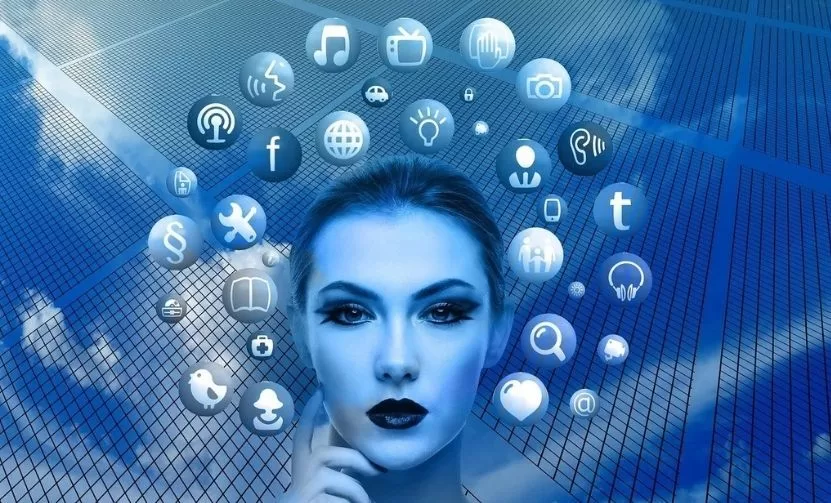
From Virtual Spokespersons to AI News Anchors
With the rapid integration of artificial intelligence (AI) into our daily lives, there’s growing curiosity about the extent and consequences of this transformative concept. One area where AI is making significant strides is in the media landscape. From virtual spokespersons providing updates on ongoing conflicts to AI-powered news anchors delivering 24/7 coverage, the influence of AI in media is undeniable. This article delves into the evolving role of AI in media and its implications for the future.
AI Spokespersons
Redefining Communication In response to Russia’s invasion of Ukraine, the Ukrainian government introduced an AI spokesperson named Victoria Shi. Victoria Shi, based on the likeness of Ukrainian singer and influencer Rosalie Nombre, serves as an innovative means to disseminate information about the conflict. Dressed in all black with a Ukrainian flag pin, Victoria Shi symbolizes a technological leap in diplomacy. By utilizing AI for communication, Ukrainian leaders can streamline their efforts and focus on assisting citizens amidst the crisis.
The Rise of AI News Anchors
Countries like China, India, Greece, Kuwait, and Taiwan have embraced AI news anchors to revolutionize traditional broadcasting. These lifelike virtual anchors, capable of delivering news round the clock in multiple languages, signify a paradigm shift in media production. China’s introduction of Lisa, an AI-generated news anchor, exemplifies this trend. By delegating repetitive and data analytical tasks to AI, human news anchors can dedicate their time to exploring new angles and fostering creativity in reporting.
Enhancing Efficiency and Accessibility in Media
The adoption of AI in media brings forth numerous benefits, including enhanced efficiency and accessibility. AI-powered virtual spokespersons and news anchors can operate continuously without the need for breaks or salaries, thus reducing production costs for media outlets. Moreover, AI-driven content can be tailored to suit diverse audiences, transcending language barriers and cultural differences. This increased accessibility enables a broader dissemination of information, empowering individuals worldwide to stay informed.
Ethical and Societal Implications
Despite its advantages, the proliferation of AI in media raises ethical and societal concerns. The blurring of lines between human and AI-generated content may lead to misinformation or manipulation of public perception. Moreover, the use of AI for communication purposes begs the question of authenticity and trustworthiness. As AI continues to evolve, it becomes imperative to establish ethical guidelines and regulations to mitigate potential risks and ensure transparency in media practices.

Redefining the Future of Media
The integration of AI into media represents a transformative shift in how information is produced, disseminated, and consumed. From virtual spokespersons providing real-time updates to AI news anchors delivering round-the-clock coverage, the possibilities are endless. As technology advances, AI-driven innovations will continue to reshape the media landscape, offering new opportunities for storytelling, engagement, and audience interaction. Embracing these changes while addressing ethical considerations will be crucial in shaping the future of media.
Read Also: AI Will Change The World by 2030
The advent of AI in media heralds a new era of communication, where virtual spokespersons and AI news anchors redefine the boundaries of traditional broadcasting. While offering unparalleled efficiency and accessibility, the widespread adoption of AI also brings forth ethical and societal implications that must be addressed. By navigating these challenges thoughtfully and innovatively, the media industry can harness the full potential of AI to inform, engage, and inspire audiences worldwide.





